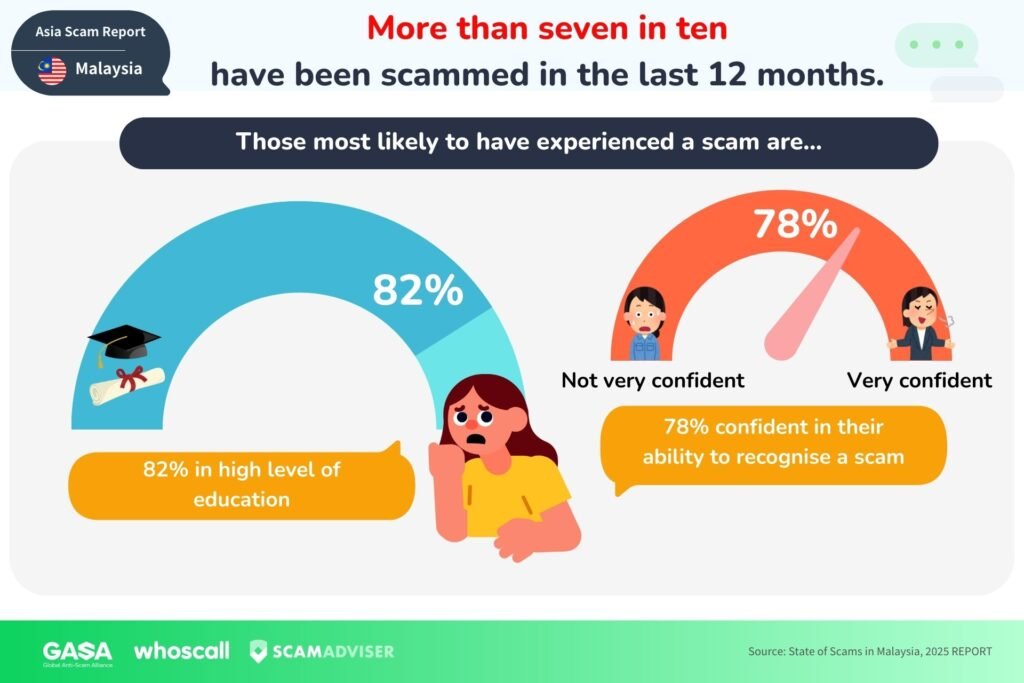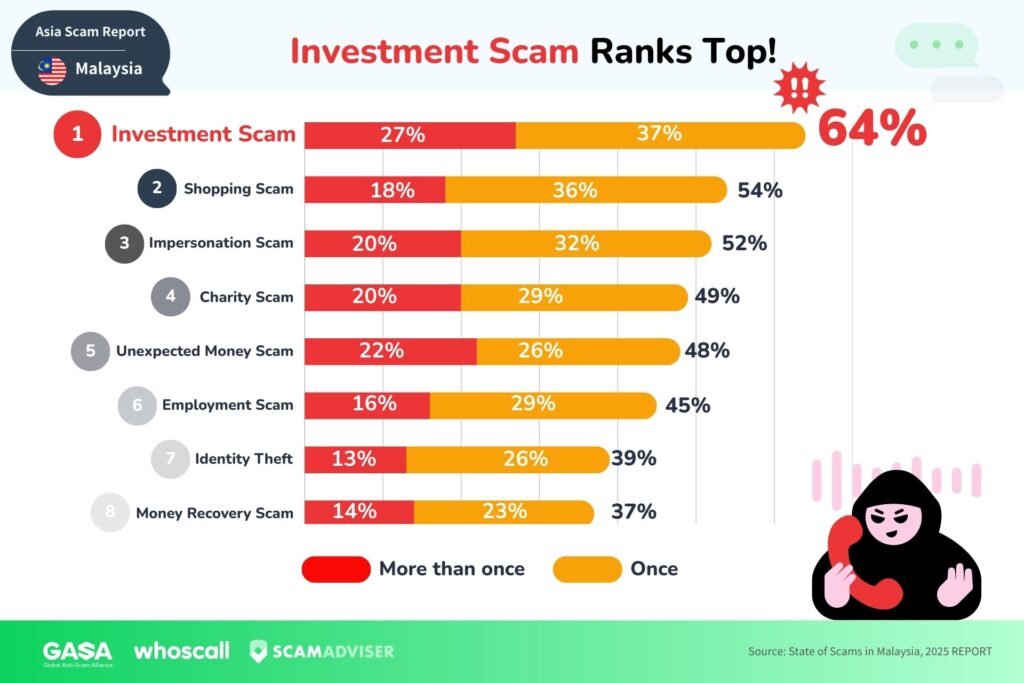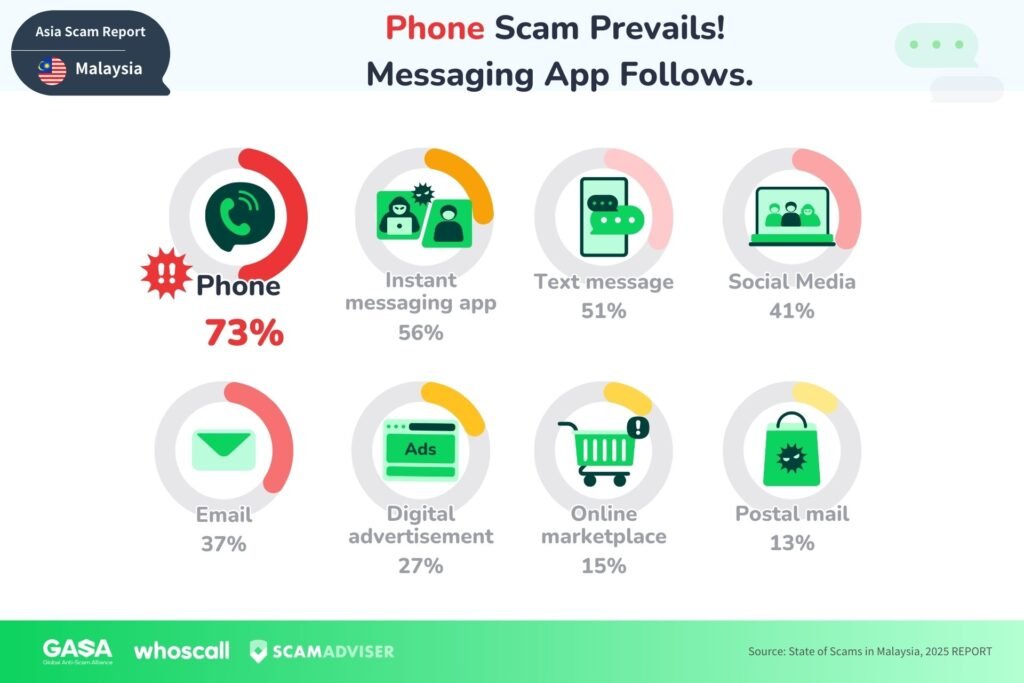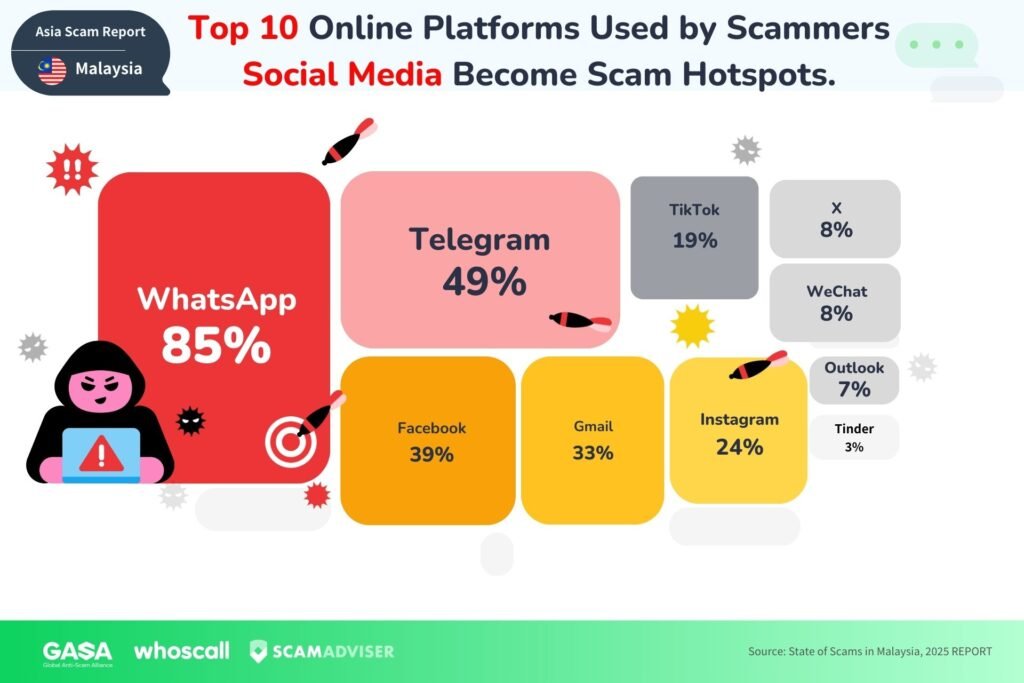Malaysians love to think they can spot scams a mile away, but the truth? A new report reveals that 73% still fall victim, losing an average of RM4,844.70 last year.
According to the 2025 State of Scams in Malaysia report by Gogolook and the Global Anti-Scam Alliance (GASA), 85% of Malaysians encountered a scam in the past year, and almost three-quarters ended up scammed, even though most felt confident they could avoid it.
The Overconfidence Gap in Malaysia
Many Malaysians (75%) believe they can recognise scams, with 14% saying they can “always” spot one. But the data proves otherwise.
Key findings include:
- Millennials are the most at risk: 78% of victims are highly educated millennials.
- Kids not spared: 21% of parents reported their child (7–17) had been scammed at least once.
- Phone calls remain #1 scam channel, but messaging apps like WhatsApp, Telegram and Facebook now make up 56% of attempts.
- Top scam type: Investment scams.




This shows that being educated or tech-savvy doesn’t guarantee scam immunity. Many still rely on weak methods like checking grammar errors or company social media accounts to judge legitimacy.
Malaysians Want More Protection
Scam reporting remains low, 23% of victims never reported their case. Why?
- Didn’t know where to report (35%)
- Felt reporting was pointless (34%)
Those who did report usually went to the police (27%) or social platforms (25%).
Interestingly, Malaysians place the biggest responsibility on the government to protect against scams. But they trust consumer protection organisations more when it comes to education, ease of reporting, and victim support.
Tech to the Rescue: Whoscall in Malaysia
To fight scams, tech is stepping in. Whoscall, the only anti-scam app in Malaysia officially approved by Royal Malaysia Police (PDRM), is helping users block shady calls and messages with AI-driven scam detection.
The app goes further by scanning suspicious links and even analysing screenshots of scam messages. This could be a gamechanger in narrowing the preparedness gap Malaysians are facing.
Why This Matters for Gen Z Malaysians
For digital-first Malaysians, especially Gen Z who practically live on WhatsApp, Instagram, and Telegram, this study is a wake-up call. Confidence doesn’t equal protection.
With scams evolving daily, tools like Whoscall and knowing how to report scams aren’t just nice-to-haves, they’re must-haves to stay safe online.
Staying Scam-Smart in Malaysia
The 2025 State of Scams in Malaysia report makes it clear: overconfidence is costing Malaysians. While awareness campaigns help, better tools, education, and stronger reporting culture are needed.
So, next time you get that “too good to be true” message — remember, it probably is. Protect yourself, protect your duit.
